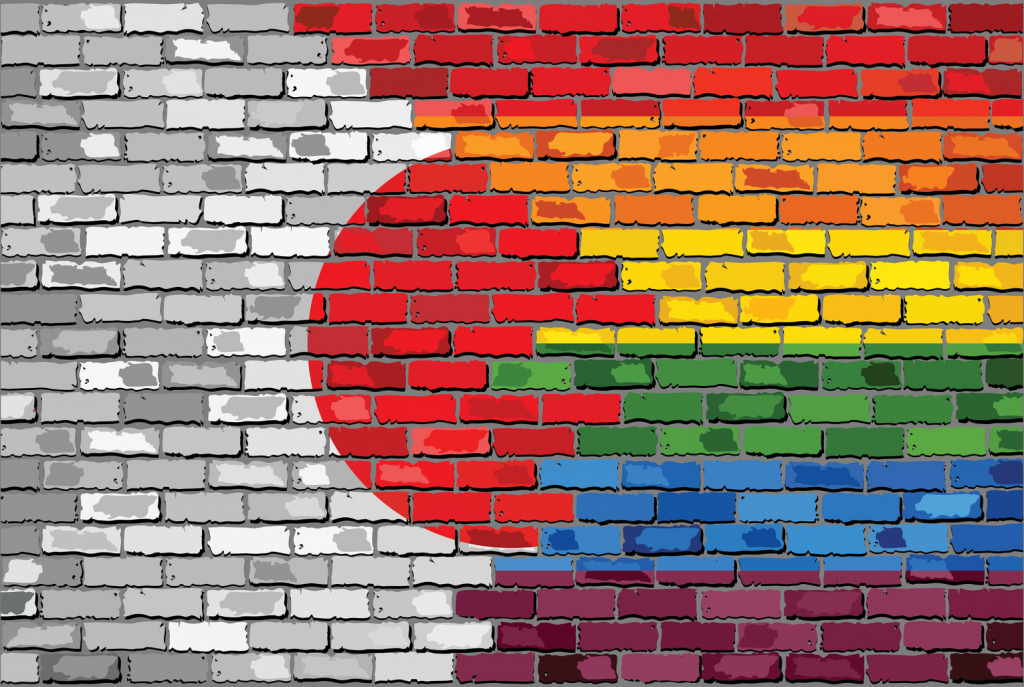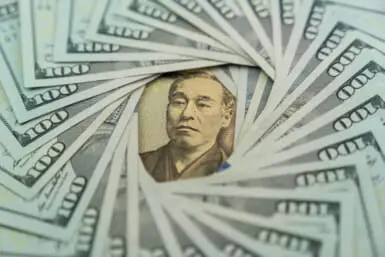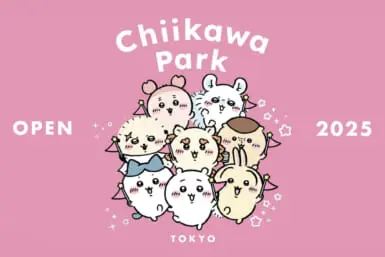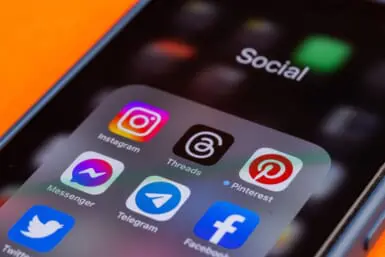Saitama held its Rainbow Parade on January 25 near Kawagoe Station with about 200 visitors, including transgender activist Fumino Sugiyama and author Ryousuke Nanasaki.
In stark contrast to rainbow pride celebrations in Tokyo, London and other large cities, Saitama Rainbow Pride had one small truck leading participants around the station, and a limited number of booths and activities. Relatively low turnout is no deterrent, however. When Aomori started its own pride celebration back in 2014, it had three people show up. Now it has over 140.
A Pride at a Time
Following the example of others, more prefectures are joining in the rainbow pride movement, with Iwate Prefecture holding its annual pride since 2019 and its neighbor, Akita Prefecture, hosting its very first in May of this year with the slogan “We Are Here.”
And here they are indeed. Despite Japan being scrutinized about its stance towards the LGBT community, local governments and activists are seeing to increasing awareness and enabling a discrimination-free environment that is safe to come out in. Among others, Gay Bar Dragon Men in Shinjuku holds its monthly Not Alone Café where gay men looking for belonging meet over free drinks and snacks. A few groups on social platform MeetUp also play their part by organizing events, such as picnics and karaoke night for the LGBT community to make connections.
Media Representation
The media also seems to be more inclusive and realistic in how they portray characters of different sexual orientation. Manga adaptation and award-winning show What Did You Eat Yesterday aired on TV Tokyo and portrayed the life of a middle-aged gay couple living in Tokyo. The manga series My Brother’s Husband was also adapted into a live-action television drama and broadcasted by NHK. The main character, Yaichi, overcomes his homophobia by letting his twin brother’s widower, Mike, stay at his home. Other than answering questions heterosexuals might have about homosexuality, the manga serves as a moving story about internal struggle and coming out.
Same-Sex Marriage Recognition
Currently, same-sex marriage is recognized on a prefectural level in Ibaraki and Osaka and about 30 municipalities which, combined, are home to less than 25% of the population in Japan. An additional 10 jurisdictions have announced plans to adopt the policy, most of which start in April this year. Until last week, 759 couples received same-sex partnership certificates in Japan, an increase of 238 couples since July 2019.
Bumpy Road Ahead
On the not so bright side, those with political power or the means to publicly bash homosexuality are also being rather vocal. Liberal Democratic Party member, Sugita Mio, caused public outcry back in 2015 with her appearance on a YouTube channel where she was seen smiling when referring to the high rates of suicide among LGBT children. That did not stop her from publishing an article in 2018, in which she calls the LGBT community unproductive members of society and that it, in her opinion, receives too much support. Eitaro Ogawa, literary critic, went a step further to call the hardship that homosexuals experience as subjective and paralleled it to the one compulsive gropers go through to stop themselves from groping women on the train.
Speculations are that as long as conventional family defender Liberal Democratic Party remains in power, the LGBT community will not receive recognition nationwide. Point of proof, the supreme court upheld the requirement that transgender people be sterilized, if they want to change their gender on official documents.
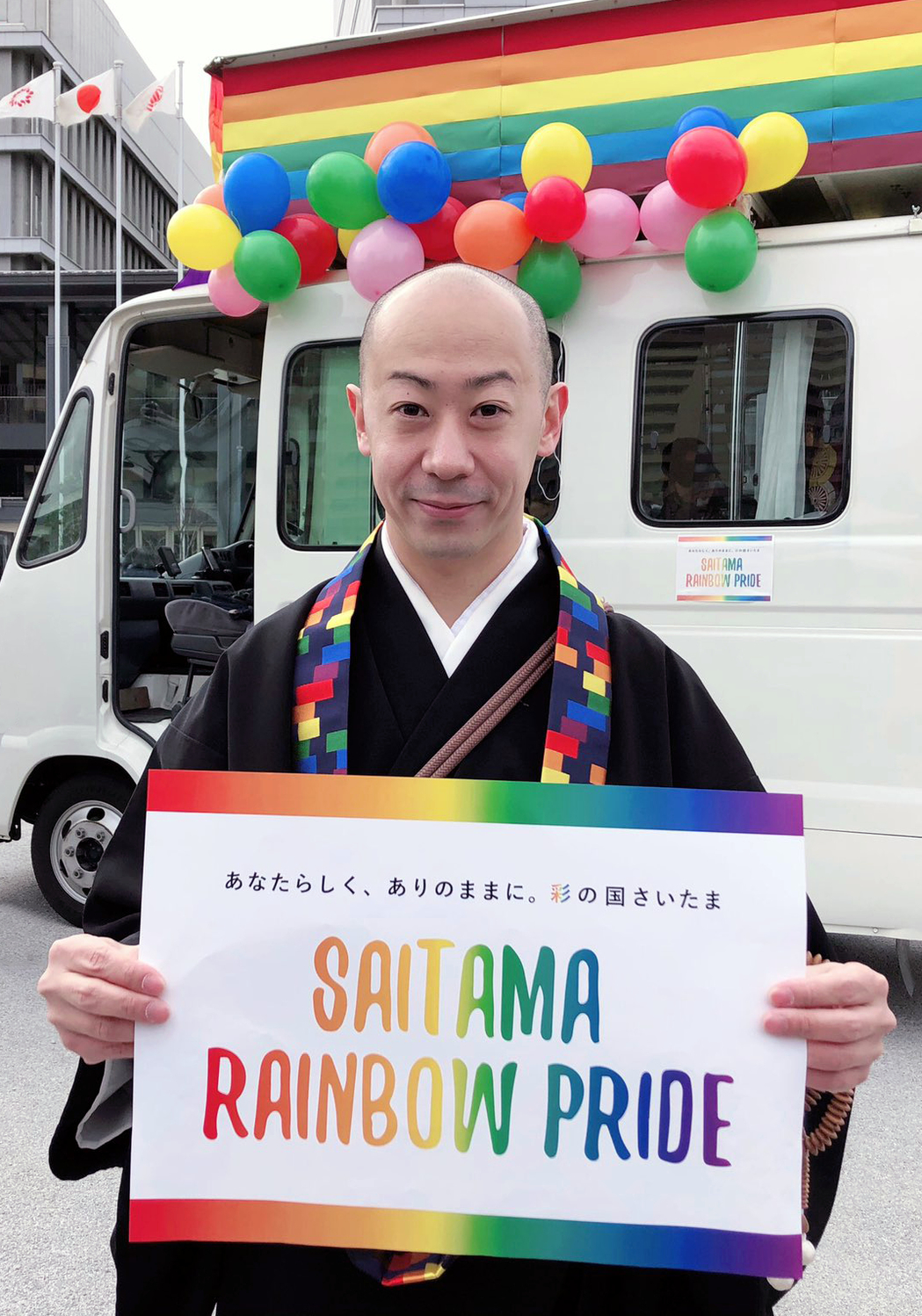
Courtesy of Senda Myokan
Local Government Against Discrimination
When asked to comment on the Saitama Pride’s low turnout, Buddhist monk and LGBT supporter Senda Myokan referred to fear of being discriminated against if seen marching, in addition to weak promotion of the event. Discussing discriminatory comments from persons with political power and influence, he reckoned that for some of them it might work as a way to receive publicity and cover shortcomings in their skills.
Starting in April of this year, Saitama city is planning to start offering same-sex partnership certificates to LGBT couples. Around the same time, Senda plans to advertise LGBT weddings at his temple, making it the second temple in Japan to publicly promote ceremonies targeting same-sex couples.
Realizing that offering same-sex partnership certificates is not enough to eliminate discrimination, Saitama Prefecture governor, Ono Motohiro, announced plans to look into LGBT related issues and ways of tackling them. “I believe there are many people who are not open about their sexuality, so first we need to correctly understand the factors that prevent them from coming out,” he explained at a stated meeting earlier this week.
Tokyo Rainbow Pride 2020 is scheduled for April 25–26, with Pride Week lasting until May 6. Find details on our Event listing.

